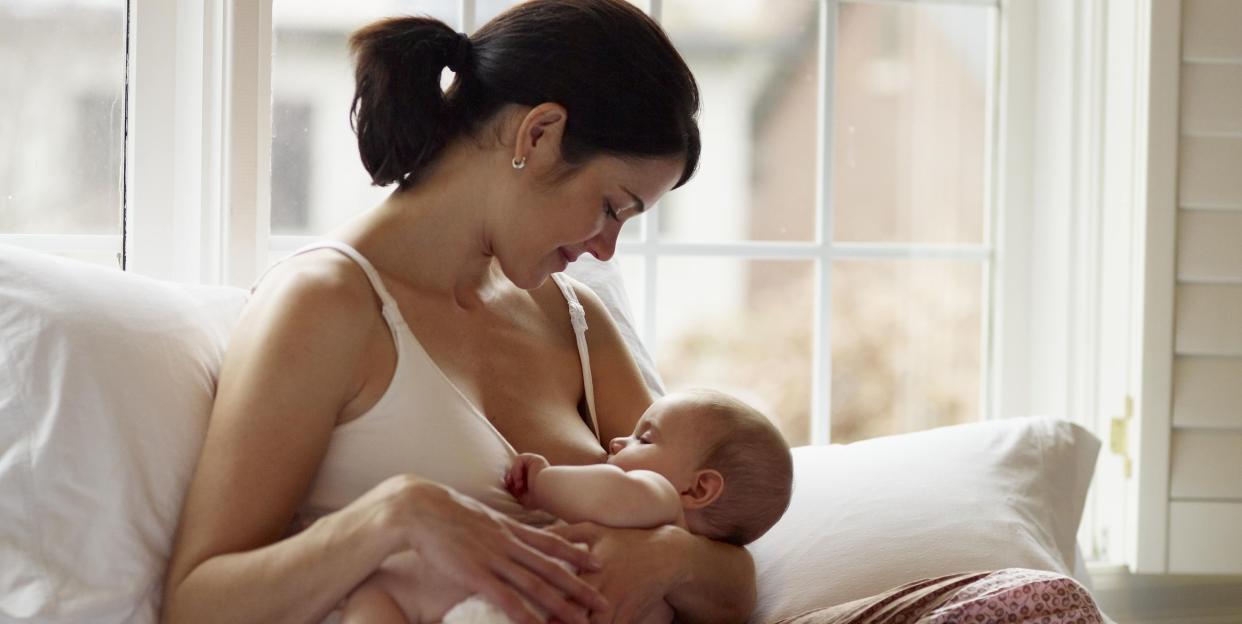Breastfeeding Women Are Less Likely To Develop Heart Disease, A Study Reveals

A study by the Medical University of Innsbruck, Austria, published by Science Daily, found that women who breastfeed are less likely to develop heart problems than those who don't.
Involving the analysis of 1.2 million health records, the study showed that breastfeeding appears to reduce the risk of cardiovascular disease by 11%.
The research studied the records of women with an average age of 25, who had experienced the birth of their first child – and assessed the link between breastfeeding and the mothers’ chance of suffering a cardiovascular disease.
Using records from 1986 up until 2009 and factoring in Australia, China, Japan, Norway, the US, as well as a multinational study, within the research, it also found breastfeeding women are less likely to die from a stroke.
Including a follow-up assessment, the research revealed that over an average of 10 years, women who breastfed were also 14% less at risk of developing coronary heart disease and 12% less likely to suffer from strokes.
And what is more, while we know that breastfeeding has immediate benefits for mother and baby during the breastfeeding journey, this new research seems to suggest that the cardiovascular benefits on the mother could last up to 10 years after she's finished breastfeeding.
As for why breastfeeding is believed to mean less chance of developing cardiovascular disease, scientists suggest this is linked to the hormone oxytocin being released during breastfeeding, known to relax blood vessels, The Times reported.
Having a lower cardiovascular risk is also related to many women experiencing weight loss in the early stages of motherhood, due to breastfeeding increasing calorie burn.

Peter Willeit, a senior author of the study, who is also a professor of clinical epidemiology at Innsbruck, told the news outlet: 'It’s important for women to be aware of the benefits of breastfeeding for their babies’ health and also their own personal health.
'These findings from high-quality studies conducted around the world highlight the need to encourage and support breastfeeding, such as breastfeeding-friendly work environments, and breastfeeding education and programmes for families before and after giving birth.'
The NHS website recommends breastfeeding for around the first six months of a baby's life.
And when a child reaches two, all the nutrients they require should come from their diet, at which point there are less in the way of scientific benefits for breastfeeding over this age, The World Health Organization states.
Of the other benefits that come from breastfeeding, protection against infections in babies, as well as reducing mothers' chance of breast and ovarian cancer, are amongst them.
However, despite around 80% of women in the UK having started breastfeeding, many stop in the first few weeks following childbirth.
The breastfeeding figure plummets dramatically when accounting for babies who reach six months, at which point only a third are being breastfed. And by 12 months, only 0.5 per cent of mothers are breastfeeding, the BBC reported.
The UK is said to have one of the lowest breastfeeding rates.
Still, as Dr Davie told the outlet: '... families should do what they feel works best for them, saying: 'Breastfeeding is a very personal thing.'
You Might Also Like


